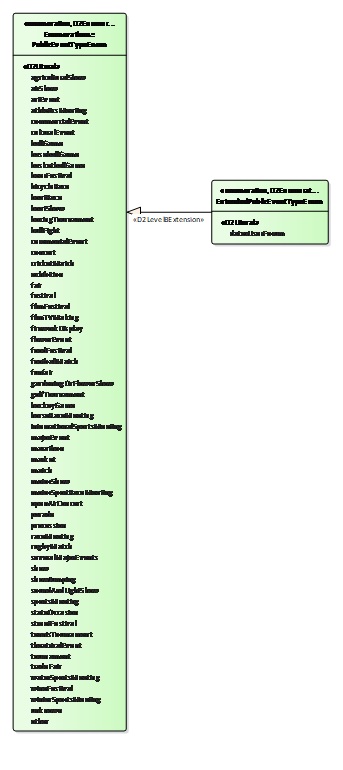Introduction extensions¶
Introduction and guideline¶
General extension rules¶
DATEX II models can be extended using extensions. The following conditions must be kept in mind:
DATEX can be extended with application specific extensions.
Extensions are recommended to be done in the UML model. Users are strongly discouraged to manually edit the generated schemas.
A level A model can be extended and will then become a Level B if the Level B extensions rules are respected. If not, the model will become a Level C model.
On this level only the extending of enumerations is described. If you want to consult the whole guide click here
Extending Enumerations¶
To extend an enumeration, create a new enumeration by dragging a D2Enumeration from the resources tab, to the extension package or a diagram in the extension package. To indicate that an enumeration is extending an existing element, the D2LevelBExtension UML construct shall be used.
The new enumeration extends an existing(Level A) enumeration. In the following example the ExtendedPublicEventTypeEnum extends the existing PublicEventTypeEnum from Level A.

To new enumerations it’s allowed to add new enumeration literals.